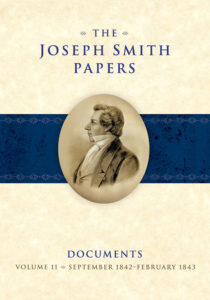by Fiona Givens
D&C 3:2: “God is constant”
In his paper, delivered to the Mormon History Association conference in June of 2016, John Rogers argued that “the central influence on the New Religion’s [the Church of Jesus Christ of Latter-day Saints] theology was Milton’s Paradise Lost. While Rogers argues that the LDS practice of polygamy and of baptism for the dead emerged from Joseph Smith’s engagement with a perhaps adumbrated version of Paradise Lost, I wish to suggest that John Milton’s portrayal of the character of the Father and Son had equal if not greater impact on Joseph’s theological thinking by way of resistance rather than absorption. In D&C 3:2, we learn that “God is constant.” Indeed, in Milton’s poem God is, described as possessing the constancy of a despot. In a fit of juvenile rage following the ingestion of the fruit of good and evil from the Tree of Knowledge, which could be transmuted into The Tree of Wisdom, “th’incensèd deity” explodes at the weakness of man, whom He had created and for whose actions he, therefore, should be responsible. “For man will… easily transgress the sole command,/Sole pledge of his obedience: so will fall/He and his faithless progeny: whose fault?/Whose but his own? Ingrate, he had of me/ All he could have” (Milton, Paradise Lost, book III 93-97). Because “man hath offended the majesty of God by aspiring to Godhead… unless someone can be found sufficient to answer for his offense, and undergo punishment” all humankind must perish (Paradise Lost, Introduction). At this point, God’s Son, apparently is not of “divine similitude” with the Father. Unlike the Father, the Son of God is seen “Beyond compare… most glorious… In his face/Divine compassion visibly appeared,/Love without end, and without measure grace.” (Paradise Lost, Book III:138-142). In this portrayal, the character of the Father and Son are very different. The merciful Son steps into the breach created by Eve and Adam’s eating of the “interdicted” fruit to protect them and their posterity from His Father’s rage and eternal damnation. The Father and the Son’s characters are so disparate. One is full of wrath and the other full of divine love. [Read more…] about Come Follow Me Week 4: Doctrine and Covenants 3–5

 Hanna Seariac is a MA student in Greek and Latin at Brigham Young University. She is currently writing a book on Latter-day Saint approach to theological stances as well as shorter pieces on prayers in scripture. She works as a research assistant on a biblical commentary and as a research assistant at the Neal A. Maxwell Institute. She values Jesus Christ, family, friends, hiking, baking, and good ice cream.
Hanna Seariac is a MA student in Greek and Latin at Brigham Young University. She is currently writing a book on Latter-day Saint approach to theological stances as well as shorter pieces on prayers in scripture. She works as a research assistant on a biblical commentary and as a research assistant at the Neal A. Maxwell Institute. She values Jesus Christ, family, friends, hiking, baking, and good ice cream.
 Mark Ashurst-McGee is a senior historian in the Church History Department and the senior research and review editor for the Joseph Smith Papers, where he also serves as a specialist in document analysis and documentary editing methodology. He holds a PhD in history from Arizona State University and has trained at the Institute for the Editing of Historical Documents. He has coedited several volumes of The Joseph Smith Papers and is also coeditor of Foundational Texts of Mormonism: Examining Major Early Sources (Oxford University Press, 2018). He is also the author of several articles on Joseph Smith and early Latter-day Saint history published in scholarly journals and popular venues.
Mark Ashurst-McGee is a senior historian in the Church History Department and the senior research and review editor for the Joseph Smith Papers, where he also serves as a specialist in document analysis and documentary editing methodology. He holds a PhD in history from Arizona State University and has trained at the Institute for the Editing of Historical Documents. He has coedited several volumes of The Joseph Smith Papers and is also coeditor of Foundational Texts of Mormonism: Examining Major Early Sources (Oxford University Press, 2018). He is also the author of several articles on Joseph Smith and early Latter-day Saint history published in scholarly journals and popular venues.